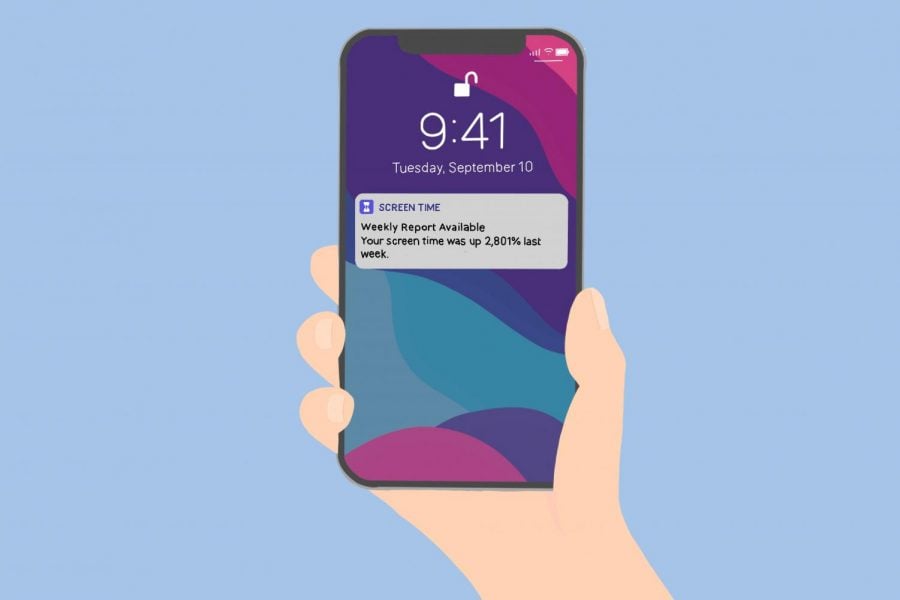Students concerned about health effects of increased screen time
Many students say they’ve seen a dramatic increase in device usage since moving off campus due to COVID-19.
May 14, 2020
Since the beginning of Spring Quarter, Weinberg first-year Ishaan Arora has been using digital devices for what feels like “pretty much every waking hour.” The tracking feature on his phone indicates his screen time has been as high as nine hours per day.
“All my entertainment and social interaction come from texting my friends,” Arora said. “When I decided to check my screen time, I realized it was way too high.”
Many students say they’ve seen a dramatic increase in device usage since moving off campus due to COVID-19. Screen time that students regularly devote to social media and gaming has been compounded by virtual classes, club meetings and social events held on Zoom.
Delaney Ruston, a primary care doctor and creator of the documentary “Screenagers,” told The Daily that students should balance every hour of recreational screen time with an additional hour of a productive activity like homework or studying — even if the latter is still on a screen.
“Having more screen time right now is very reasonable,” Ruston said. “The question is how one uses it. It’s really in terms of picking things that help support one’s emotional wellbeing.”
Excess screen time can have negative impacts on mental health, shorten attention spans, disrupt sleep patterns and cause eye strain, Ruston said.
Communication freshman Meakailyn Phillips estimated that her screen time has doubled since the start of the pandemic to an average of eight hours on her phone per day. At the beginning of the quarter, she got headaches after staring at screens for extended periods of time.
“It’s so bad,” Phillips said. “I’ll just scroll through social media and play games and hope that it makes me sleepy, but it never does.”
Phillips started wearing blue light filtering glasses after the second week of the quarter, and soon, her headaches were gone. Although some say these filters can help reduce eye strain, according to the American Academy of Ophthalmology, there is no scientific evidence that blue light from digital devices causes damage to the eyes.
Ruston said while research about blue-light filters is mixed, exposure to natural sunlight has been shown to help prevent vision problems.
McCormick first-year Nicholas Woel-Nogueira said he spends an “absurd” amount of time on Zoom and scrolling through TikTok, but he thinks screen time has more benefits than harms.
For Woel-Nogueira, screen time offers a way to destress and keep busy in the midst of the global pandemic.
“Why would I limit my screen time? To stare at the wall?” Woel-Nogueira said. “Considering the situation, it is not the worst thing in the world to be on your computer.”
Email: [email protected]
Twitter: @hannah_feuer
Related Stories:
— D202/D65 grading policies shift for remote learning
— Faculty and staff juggle parenting with remote work


